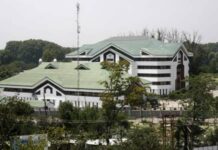ZAMIR AHMAD
The last two decades of the ‘new world order’, market economy, globalization and most importantly, the IT revolution have changed the way we look at things around us. Even as the world is still to come to terms with the information explosion and the deluge of shifting paradigms, the fast pace of change is already formulating its own course and continuously redefining the ‘terms of reference’ for development of a better world.
This state of flux is, on the one hand, creating newer opportunities for development of solutions for various problems faced by the humanity in various spheres of life; it is also providing an impetus to efforts of questioning the stated positions, stereotyped responses and dogmatic approaches to understanding of the purpose of existence of the human race. In essence, the present age, perhaps, provides the most conducive environment for understanding, adopting and spreading the message of the Creator on this planet. This modern age, if it may be called so, has opened new vistas of opportunity to work for the welfare of humanity and to provide solace to the human race.
These opportunities manifest themselves as advanced means of communication, unprecedented access to information, melting of borders, reawakening in Western societies, emergence of unbiased and unprejudiced scholars and writers in various societies, all pervasive nature of technology etc.
From a regional perspective, these very two decades of scientific, economic and social advancement the world over have been the decades of worst civil strife for us. This has resulted in a double whammy for us. Not only have we been denied the benefits of all these advancements, we have also lost whatsoever institutions we had prior to the strife. The loss of institutions, men of grit, piety and caliber and more importantly the sense of certainty and continuity has resulted in a large void in our society which is hard to fill. The results are there for anybody to see. The stunted intellectual, moral and spiritual growth is consuming us at our vitals and crass materialism is rapidly replacing our moral systems. To fill this gap with conventional methods, institutions and discourses will be like plugging a breach with a thumbnail.
Besides the reasons stated herein, the six decade-old historical stalemate engulfing our state has all along ensured a certain kind of uncertainty to prevail upon all nation building initiatives. Given the things as they are, it becomes our duty as conscious citizens of a traumatised nation to pool our efforts in creating institutions that can play a role in socio-economic development of our place. Such institutions can in their own ways channelise the creative capacities of people from all walks of life and create national assets without waiting for the governments to do so.
Civil society initiatives in a conflict region like ours are bound to be primarily directed towards alleviating the miseries of people and provide alternative modes of survival and sustenance to those who have lost them. But from a long term perspective, such initiatives have a lesser role in nation building even when their role cannot be undermined in any case. True, civic initiatives cannot replace government programmes but we have examples of the civil society creating institutions of excellence everywhere in the world
It is therefore important for our thinking class to envisage a roadmap within the ambit of civil society initiatives so that the intellectual development and spiritual nourishment of our people is not left just to chance.
The idea is to establish an institution that can provide direction to all round development of our people especially our youth. This institution could supplement the academic pursuits of youth with much needed access to information, literature, books, discourses, opportunities and even finance. Any takers?















